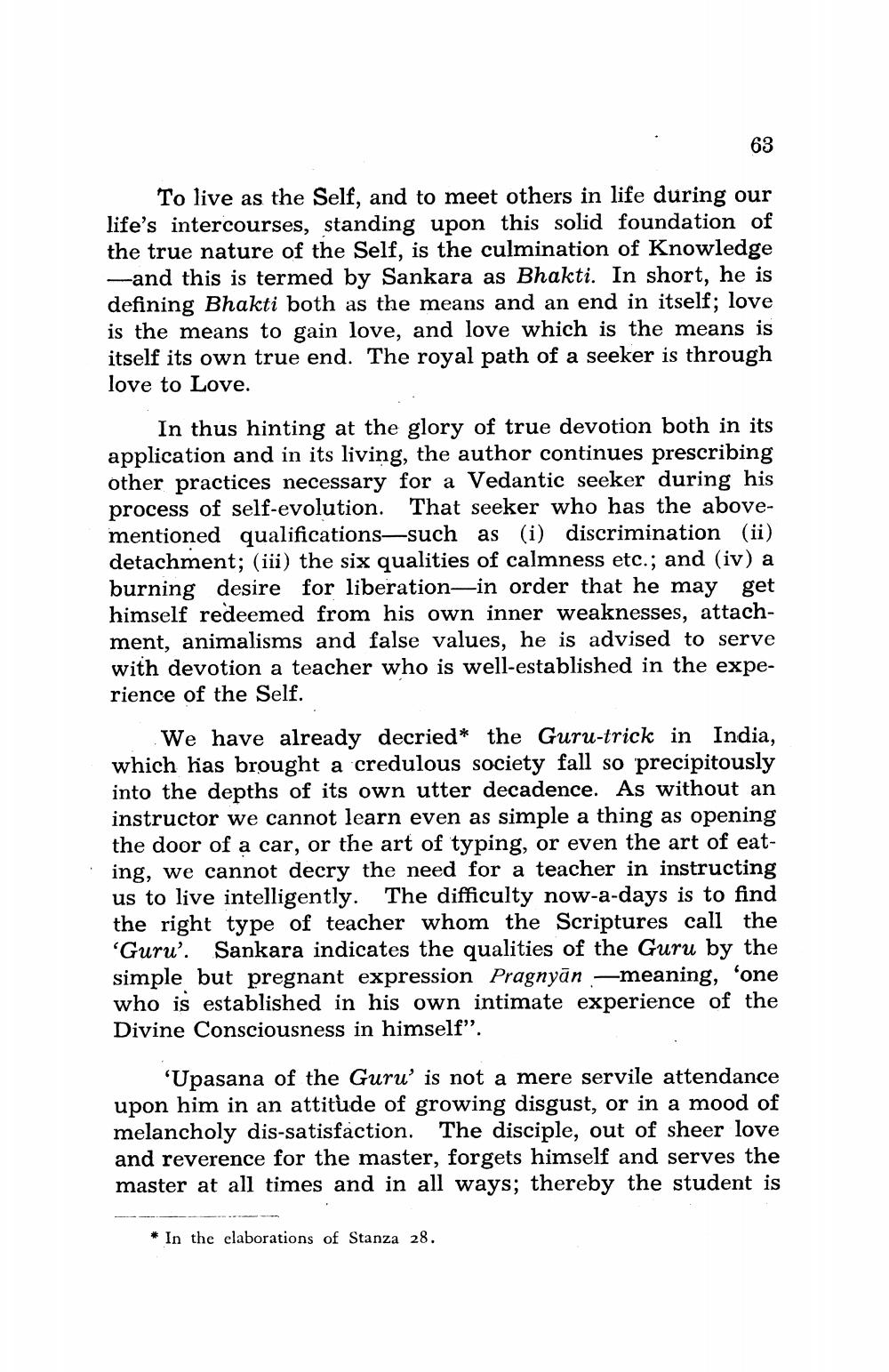________________
To live as the Self, and to meet others in life during our life's intercourses, standing upon this solid foundation of the true nature of the Self, is the culmination of Knowledge
and this is termed by Sankara as Bhakti. In short, he is defining Bhakti both as the means and an end in itself; love is the means to gain love, and love which is the means is itself its own true end. The royal path of a seeker is through love to Love.
In thus hinting at the glory of true devotion both in its application and in its living, the author continues prescribing other practices necessary for a Vedantic seeker during his process of self-evolution. That seeker who has the abovementioned qualifications—such as (i) discrimination (ii) detachment; (iii) the six qualities of calmness etc.; and (iv) a burning desire for liberation—in order that he may get himself redeemed from his own inner weaknesses, attachment, animalisms and false values, he is advised to serve with devotion a teacher who is well-established in the experience of the Self.
We have already decried* the Guru-trick in India, which has brought a credulous society fall so precipitously into the depths of its own utter decadence. As without an instructor we cannot learn even as simple a thing as opening the door of a car, or the art of typing, or even the art of eating, we cannot decry the need for a teacher in instructing us to live intelligently. The difficulty now-a-days is to find the right type of teacher whom the Scriptures call the 'Guru'. Sankara indicates the qualities of the Guru by the simple but pregnant expression Pragnyān —meaning, 'one who is established in his own intimate experience of the Divine Consciousness in himself”.
'Upasana of the Guru' is not a mere servile attendance upon him in an attitude of growing disgust, or in a mood of melancholy dis-satisfaction. The disciple, out of sheer love and reverence for the master, forgets himself and serves the master at all times and in all ways; thereby the student is
* In the elaborations of Stanza 28.




